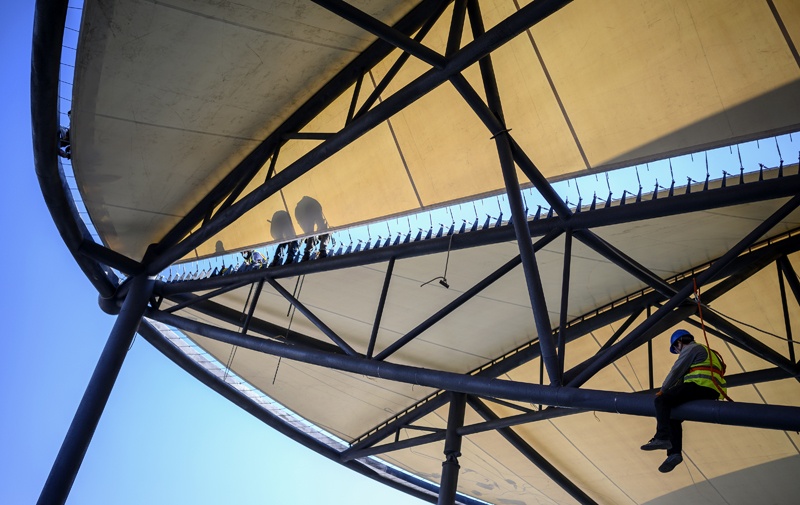
BEIJING: China said its economy had yet to fully bounce back from the coronavirus pandemic and pledged financial support for recovery efforts at the end of a key annual policy meeting on Friday. The country suffered its first contraction in decades this year in the wake of a public health crisis that prompted drastic lockdowns in Wuhan-the central industrial city where the virus first emerged late last year-and sent factory activity into a nosedive.
Its economy has since improved after authorities managed to largely contain the infection, and China is likely to be the only major world power to record positive growth this year. But officials at this week's Central Economic Work Conference, presided over by President Xi Jinping, said the global recovery would be "unstable and uneven" and signalled a fiscal policy focused on maintaining economic stability.
"We must be clearly aware that there are many uncertainties in the evolution of the pandemic and external environment, and the foundation for our country's economic recovery is not yet solid," said a statement from the three-day summit published by state broadcaster CCTV. Beijing will boost financial support to technological innovation, small business and green projects into the new year in efforts to keep the economy on an even keel, the meeting said. Officials also said they would prevent "the disorderly expansion of capital", strengthening a new anti-monopoly push.
It follows Beijing's recent signs of displeasure with the growing power of the country's tech giants, with draft antitrust rules last month suggesting more regulation for the sector is on the horizon. China has moved to clip the wings of its fast-growing online platforms, earlier halting the planned record-smashing $34 billion IPO of Ant Group, the financial arm of e-commerce giant Alibaba.
Meanwhile, foreign investors in Chinese industries from defence to tech will from next year face an extra layer of scrutiny to ensure their activities do not undermine national security, the country's top economic planner said Saturday. Under the new rules, overseas investment in Chinese industries related to the military will automatically be reviewed.
But forays into agriculture, energy, transport, internet and financial services will only face a review if they involve the acquisition of 50 percent of a Chinese company, or will significantly affect the business. Investors in those cases must submit to a government review determining whether their moves "affect national security", according to the National Development and Reform Commission (NDRC), which did not specify what activities would be seen as having such an effect.
The announcement comes nearly a year after China's new foreign investment law came into force, promising to give local and foreign companies equal treatment in the Chinese market. The NDRC said the rules, which will take effect on January 18, were intended to "effectively prevent and dissolve national security risks while actively promoting foreign investment". China said Friday it was in the last stretch of talks on a landmark investment agreement with the European Union that would allow the bloc's member states greater access to the lucrative Chinese market. - AFP










